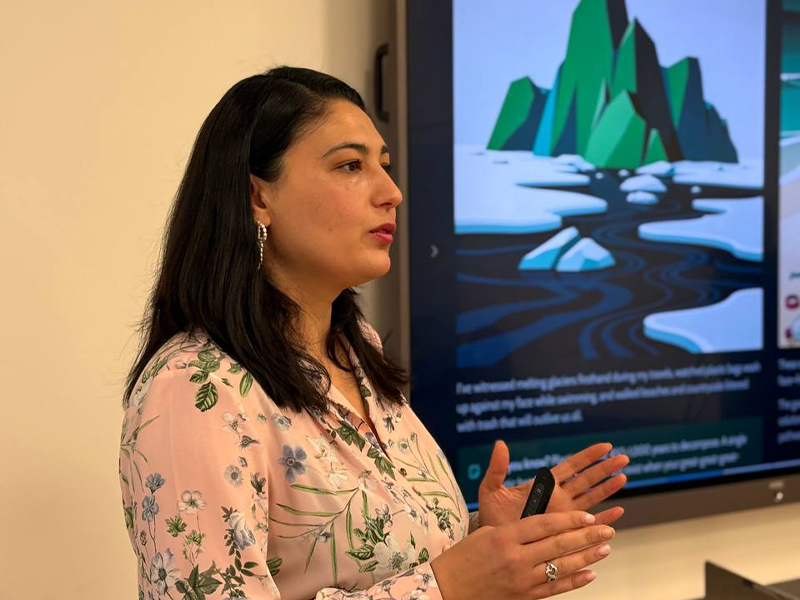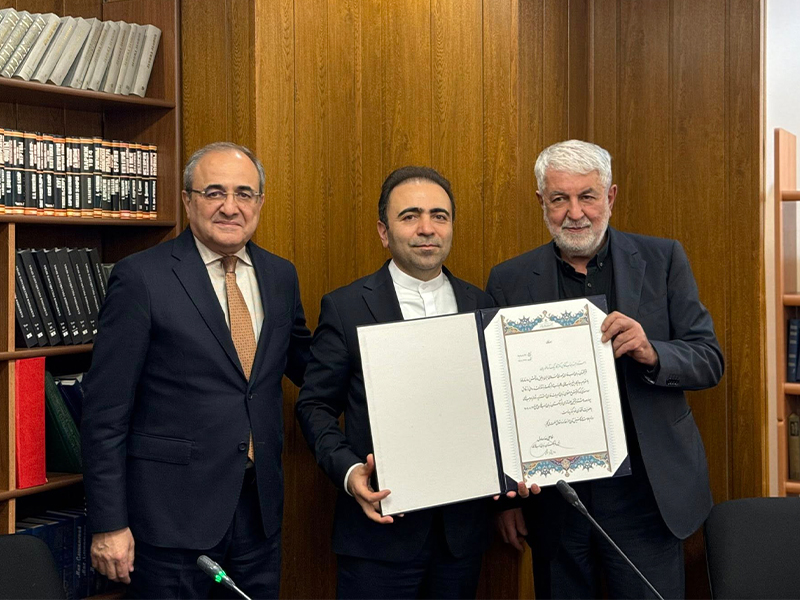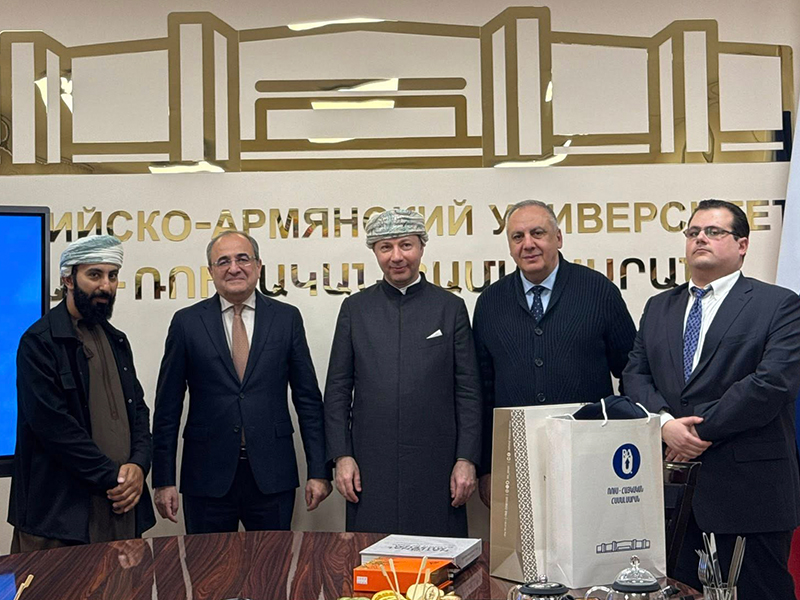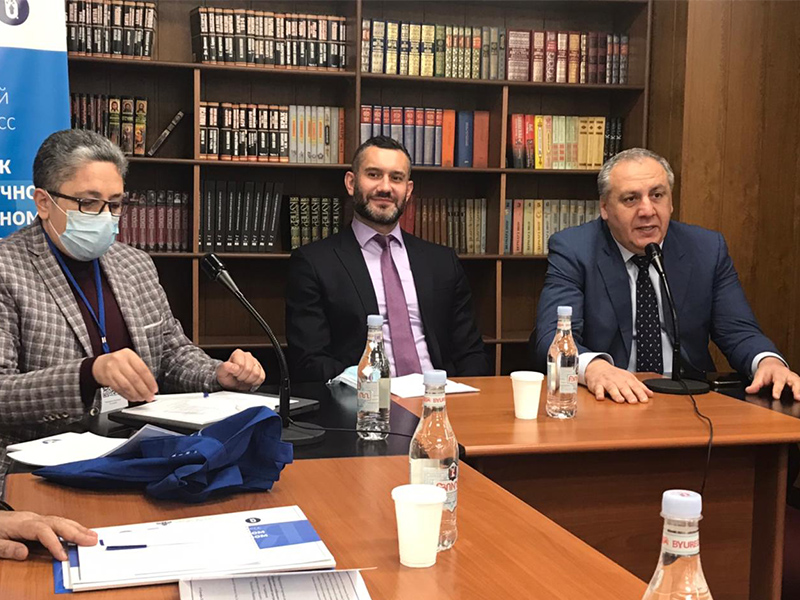
- 18 Dec
- 2021
RAU co-organized the International Congress "Russian Language in the Global Scientific and Educational Area"
The Congress was conducted with the support of the Ministry of Science and Higher Education of the Russian Federation in preparation for the Year of the Russian Language in the CIS-2023.
International Scientific Congress "Russian Language in the Global Scientific and Educational Area" was launched on December 6 in Moscow, at Pushkin State Russian Language Institute, and continued its work at leading universities in Bishkek, Dushanbe, Mogilev and Yerevan.
The plenary session of the latest direction of the Congress, "Russian language is the language of literature and culture", was conducted in the conference hall of RAU on December 10. Mikhail Osadchy, Vice-Rector for Science of the Pushkin Institute, addressed welcoming words to the Congress participants on the behalf of Dmitry Afanasyev, Deputy Minister of Science and Higher Education of the Russian Federation. Armen Darbinyan, RAU Rector, and Parkev Avetisyan, RAU Vice-Rector for Science, also addressed the audience with parting words.
“It would be impossible to unite such a large number of people from different countries if they were not members of one single linguistic, cultural, and moral space, in love with the Russian language, Russian literature and culture, and involved in it. This is a wonderful unifying educational idea," shared Lilit Meliksetyan, Head of the Department of Russian and World Literature and Culture at RAU.
During the plenary session, the specialists of the Pushkin Institute - Anastasia Solomonova, Dean of the Department of Philology, and Svetlana Kamysheva, Head of the Center for
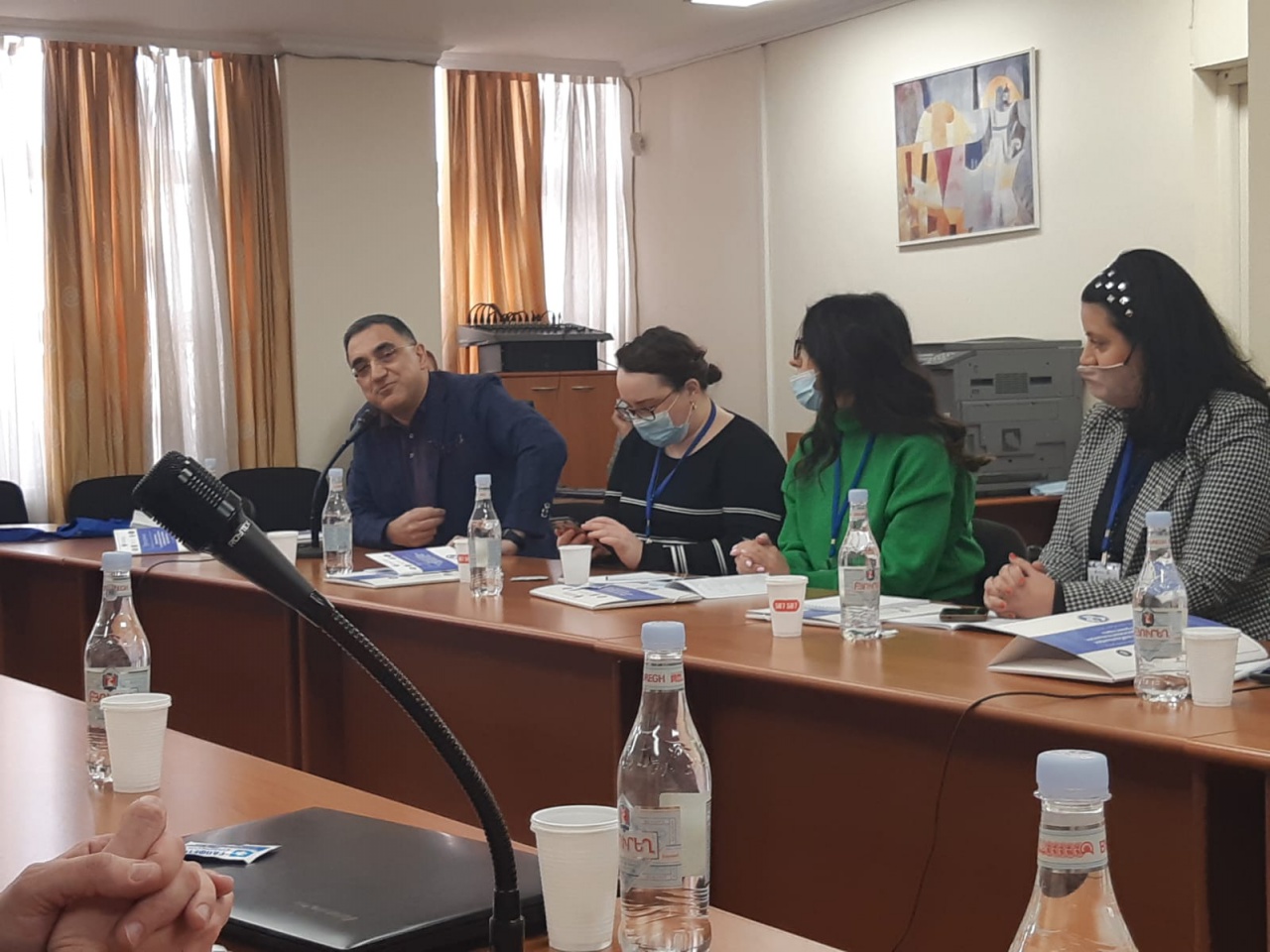 Research on Language Policy and International Education, – presented reports on the peculiarities of teaching Russian literature in a foreign language audience and methods of increasing the motivation of students for the participants. Alexander Pashkov, Head of the Department of World Literature at the Pushkin Institute, touched upon the topic of the dialogue between Russian and Armenian literatures. According to him, in Russia there is a high interest towards Armenian literature, as a whole galaxy of modern interesting authors pleases readers with their works. Guests and speakers of the meeting discussed the Russian Bible winged words and the Russian cultural code in spiritual literature as well. Moreover, they delved into the subtleties of the poetic creativity of Anna Akhmatova and Osip Mandelstam.
Research on Language Policy and International Education, – presented reports on the peculiarities of teaching Russian literature in a foreign language audience and methods of increasing the motivation of students for the participants. Alexander Pashkov, Head of the Department of World Literature at the Pushkin Institute, touched upon the topic of the dialogue between Russian and Armenian literatures. According to him, in Russia there is a high interest towards Armenian literature, as a whole galaxy of modern interesting authors pleases readers with their works. Guests and speakers of the meeting discussed the Russian Bible winged words and the Russian cultural code in spiritual literature as well. Moreover, they delved into the subtleties of the poetic creativity of Anna Akhmatova and Osip Mandelstam.
"We are proud that we have the honor to open a section dedicated to the Russian language, literature and culture in Armenia, as well as to complete the entire Congress. The conference was held literally in one breath. It presupposed highly professional reports, comments, remarks and a friendly atmosphere. I hope that this Congress will not just be one another event, but that it will become a phenomenon, a precedent, so that this kind of communication will keep on existing in the future and fascinating our society in learning the Russian language along with introducing it to the Russian culture," said Karen Hakobyan, Head of the Department of Russian Language and Professional Communication of the RAU.
Following the event, Russian-Armenian University and Pushkin Institute signed an agreement on the establishment of a joint research and practical laboratory and a Department of the Pushkin Institute in its composition. As Mikhail Osadchy highlighted, Armenia became the fourth country in which the department of the Pushkin Institute was opened.
The organizers of the Congress were Pushkin State Institute of the Russian Language, Kyrgyz-Russian Slavonic University, Russian-Tajik (Slavonic) University, Belarusian-Russian University and Russian-Armenian University. More than 550 speakers – researchers, teachers, government officials, public figures – had been sharing their experience and discussing the most important and topical issues in the field of the Russian language, linguistics, literature and culture, including the problems of functioning of the Russian language as a global language of science and education, the language of interethnic communication of the CIS countries for five days. More than 3,400 specialists from 59 countries all over the world, including 2,950 representatives of CIS countries, have registered to participate in the Congress. The events were held both offline and online with a live broadcast on YouTube.
The Congress was conducted with the support of the Ministry of Science and Higher Education of the Russian Federation in preparation for the Year of the Russian Language in the CIS-2023.
Translated by Eugenia Dolunc
(Master's Program in Translation & Interpretation)






